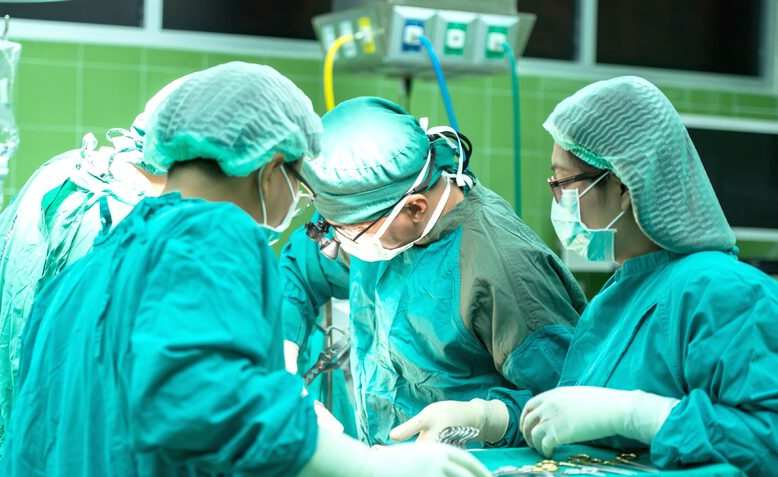 Doctors, Photo: Public Domain
Doctors, Photo: Public Domain
Caitlin Southern reports on the junior doctors’ strike in Nigeria, and argues that international solidarity can help them win this crucial struggle.
Junior doctors in Nigeria have been taking strike action for the past two months to highlight their poor working conditions, and to protest against some of the lowest wages for the profession globally. These conditions have fuelled a staffing and retention crisis, with half of the qualified doctors produced by the country already working abroad, and the majority of trainees planning to emigrate. This lack of medical staff contributes to Nigeria having worse than average health outcomes for sub-Saharan Africa, with over 2,000 children under the age of five dying on a daily basis.
That both the President and the leader of the opposition have sought medical treatment in London, rather than working to solve issues within the Nigerian health system, highlights the contempt in which Nigeria’s doctors are held. It demonstrates the necessity of striking in order to force the government into negotiating and implementing a fair and equitable settlement.
Unfortunately, the Nigerian government has a tendency to make empty promises when negotiating with unions, reaching settlements that it then fails or refuses to enforce. A Memorandum of Understanding was agreed in August with specific deadlines for the implementation of the payment of salary arrears, among other important issues. The government failed to meet these deadlines. It has resorted to threatening striking doctors with dismissal, rather than collaborating to create radical yet viable solutions to the problems that continue to result in preventable deaths from diseases such as dysentery, malaria, and typhoid.
Despite a disappointing lack of support and solidarity from the Nigerian Labour Congress, the Nigerian TUC, and the joint union of other health workers (JOHESU), the junior doctors are determined to win this dispute. A meaningful victory on pay and conditions could have far reaching consequences, as it will encourage more doctors to stay and campaign for further improvements. It will also remind their government that it cannot continue to treat such vital workers with a callous disregard, which would only end in a catastrophic collapse of the healthcare sector.
International Solidarity
International support for the striking doctors is important as we must send the message that they are not alone, and that the fight for pay and conditions is not confined to any one country or profession. By standing in solidarity we have the chance to help Nigeria’s junior doctors win this strike, and build momentum internationally to challenge the capitalist system that dehumanises, divides and degrades us all.
It is vital for activists in the UK to network and build connections with comrades around the globe, in order to present a clear message to governments and decision makers that we do not consent to the way things are. We want permanent, viable change that allows every human being to thrive. Access to healthcare is a fundamental human right and by continuing their strike, the junior doctors of Nigeria are reminding activists everywhere that this fight can, and must be, won.
By providing public, visible support, as trade unions, political organisations and individuals, we can help to bring this dispute to a successful conclusion more swiftly. It will be a significant victory for the labour movement in Nigeria to force their government into capitulation, and a heartening reminder to workers everywhere of the power of strikes and protest.
Messages of support and solidarity can be sent to the National Association of Resident Doctors (NARD) at [email protected].
Before you go
Counterfire is growing faster than ever before
We need to raise £20,000 as we are having to expand operations. We are moving to a bigger, better central office, upping our print run and distribution, buying a new printer, new computers and employing more staff.

